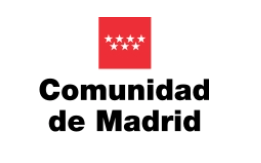CLORATO: Materiales porosos para la minimización de cloratos en aguas tratadas
Call for aid for the completion of industrial doctorates 2019 of the Community of Madrid (Ref: IND2019/AMB-17129).
Water chlorination is a commonly used water disinfection process based on the addition of chlorine or chlorine compounds (e.g., sodium hypochlorite) to water. The benefits of using chlorination in water disinfection are many, highlighting that it is a potent germicide able to reduce the levels of pathogenic microorganisms (e.g. in some countries, it has been possible to eradicate waterborne diseases – cholera, typhoid fever, hepatitis A– through chlorination). Water chlorination, in turn, leads to the formation of other harmless products such as chlorates and chlorites. Despite the low toxicity of the formed chlorinated species (mean lethal dose (LD50)>3861 mg·kg1), chlorate can act as an inhibitor in iodine assimilation, so the European Food Safety Authority (EFSA) recommended in 2015 to reduce its concentration in drinking water.
In this context, this industrial doctorate project intends to combine the extensive experience of the Canal de Isabel II (Canal) in the treatment and supply of drinking water, with the knowledge of the Advanced Porous Materials Unit of IMDEA Energy (IMDEA) in the production of advanced porous materials in order to design, optimize and build a complete and continuous system that allows the elimination of chlorates in drinking water



